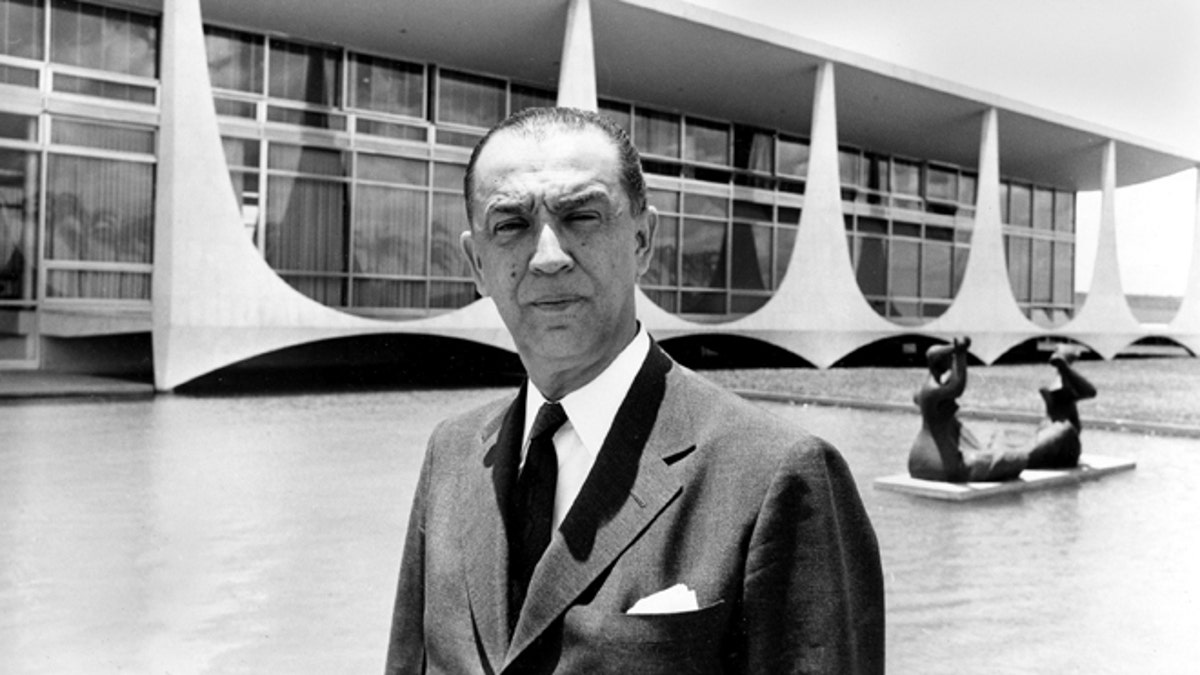
In this undated 1960 file photo, Brazil President Juscelino Kubitschek poses for a photo in Brasilia, Brazil. (AP)
SAO PAULO – The Truth Commission of the city council of Brazil's biggest city said Tuesday that the car accident that killed former President Juscelino Kubitschek in 1976 was a setup ordered by the military regime that then ruled Latin America's biggest country.
Commission president Gilberto Natalini said it's clear Kubitschek was murdered. At the time, officials said the crash on the highway between Sao Paulo and Rio de Janeiro was an accident.
He said the commission analyzed 90 pieces of evidence and questioned witnesses.
Kubitschek, who oversaw the creation of his nation's new capital city of Brasilia, was a centrist who opposed the military coup and hoped to run again for president in 1965. He was president from 1956-1961, a time of economic expansion for the South American nation.
Natalini told the city council that the former leader "was the victim of a conspiracy and a political crime. The (1964-1985) military dictatorship was responsible for the death of the former president," Natalini said.
Ivo Patarra, one of Natalini's aides, said the commission's findings will be sent to President Dilma Rousseff, Congress, the Supreme Court and Brazil's National Truth Commission which is investigating human rights abuses committed during the military dictatorship.
"In principle, the objective of our investigation and report is to let the truth be known, to correct history," Patarra said. "If the report is eventually used to bring those guilty for Kubitschek's death to justice, only time will tell."
The National Truth Commission is also conducting its own investigation into Kubitschek's death. That agency's press office said that it had not received the Sao Paulo report and would not comment until it studies how it reached its conclusions.
The Human Rights Ministry said it did not have any immediate comment.
The National Truth Commission does not have power to prosecute anyone because of a 1979 amnesty law that released civilians and the military from liability for politically motivated crimes committed during the dictatorship. It could, however, reveal the abuses and the names of those who committed them.
Unlike Argentina, Chile and Uruguay, which also had repressive military regimes, Brazil has never punished military officials accused of human rights abuses.
In 2000, then-Rio de Janeiro state Gov. Leonel Brizola said the crash that killed Kubitschek was part of Operation Condor, a continentwide campaign of political killings and torture.
